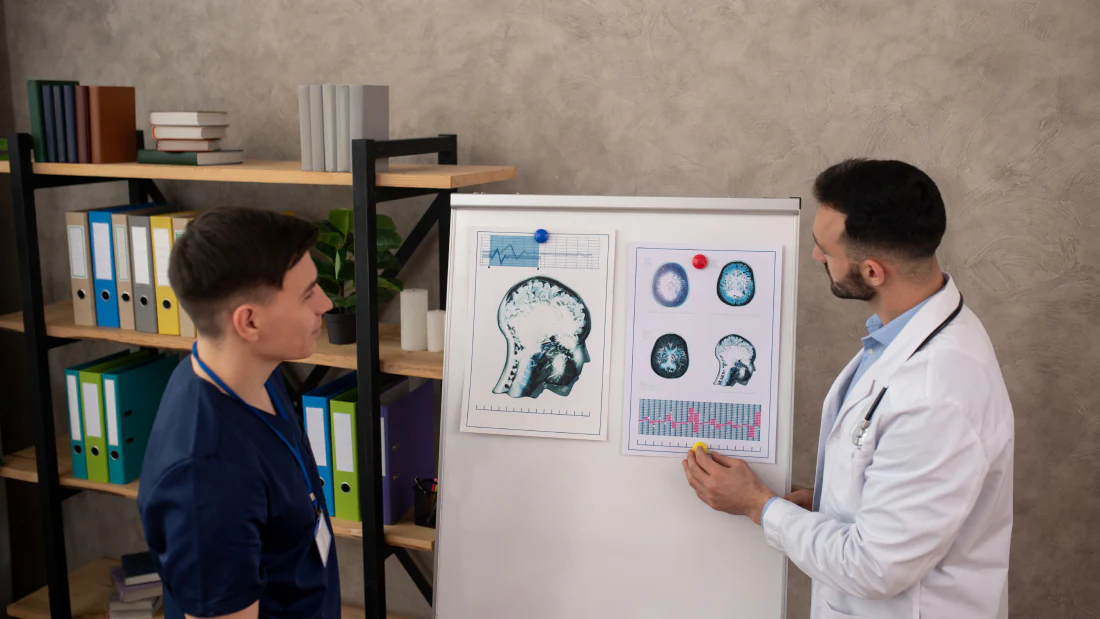
Brain Health Coach Certification: Everything You Need to Know About Building a Career in Cognitive Wellness
Understanding the Role of a Brain Health Coach
A brain health coach is a professional who helps individuals improve cognitive performance, manage stress, and adopt habits that protect long-term brain function. Unlike traditional health coaches who may focus broadly on diet, exercise, or lifestyle, a brain health coach specializes in strategies that directly impact mental sharpness, memory, focus, and resilience. This field combines neuroscience insights with practical coaching techniques, making it both science-driven and highly personalized. Clients often seek out brain health coaches to overcome challenges like brain fog, poor concentration, or difficulties with stress regulation. With more people recognizing the role of brain health in overall well-being, the demand for experts in this area has steadily grown. A brain health coach certification prepares you to guide others through structured programs that enhance cognitive wellness. By developing these skills, coaches empower clients to live more vibrant, focused, and productive lives.
Why Brain Health Coaching Is in High Demand
Over the past decade, the global spotlight on brain health has intensified. Rising cases of cognitive decline, such as dementia and Alzheimer’s, have prompted individuals and organizations to explore preventive strategies. At the same time, modern lifestyles filled with chronic stress, digital distractions, and poor sleep habits have amplified the need for mental fitness support. Brain health coaching bridges this gap by helping clients adopt practical, daily practices that boost mental clarity and reduce risks of cognitive-related issues. Employers are also recognizing the value of mental wellness in maintaining workforce productivity, making brain health coaches valuable assets in corporate wellness programs. Educational institutions and senior care facilities are embracing brain health initiatives as well, given the diverse age groups affected by cognitive challenges. The rising interest in optimizing performance, whether in academics, sports, or careers, adds to the appeal of this profession. These trends highlight why investing in a brain health coach certification can be a future-proof career choice.
What a Brain Health Coach Certification Covers
Certification programs in this field are designed to equip learners with both theoretical knowledge and practical tools. Core subjects often include neuroscience fundamentals, nutrition for brain optimization, stress management techniques, and sleep hygiene practices. Students also learn evidence-based coaching methodologies that allow them to guide clients through measurable lifestyle changes. Many certifications emphasize the connection between physical health and mental performance, reinforcing how exercise, diet, and mindfulness play integral roles. Ethical training and professional standards are also embedded in these programs, ensuring that certified coaches deliver safe and responsible guidance. In addition, some certifications provide training in assessment tools, allowing coaches to evaluate baseline cognitive health and track improvements over time. With this comprehensive education, a brain health coach certification enables graduates to confidently address diverse client needs.
The Steps to Becoming a Certified Brain Health Coach
Pursuing a brain health coach certification begins with researching accredited programs that align with your goals. Some institutions cater to healthcare professionals, while others are open to anyone with a strong interest in wellness. Prerequisites may vary, though most programs do not require a medical background, making this field accessible to career changers. Training duration typically ranges from several weeks to several months, depending on the intensity and format of the course. Online programs have become increasingly popular, offering flexibility for students balancing other commitments. Certification exams often include both written and practical assessments, ensuring graduates have mastered core concepts and coaching techniques. By completing this structured process, individuals establish themselves as qualified brain health coaches capable of delivering real value to clients.
Benefits of Earning a Brain Health Coach Certification
Obtaining certification provides significant advantages in both professional credibility and personal development. Clients are more likely to trust and invest in services from certified coaches, as the credential reflects a commitment to evidence-based practices. Certification also grants access to structured frameworks that simplify the coaching process, making it easier to deliver results consistently. On a career level, certified brain health coaches enjoy expanded opportunities across industries including healthcare, corporate wellness, education, and fitness. Many also transition into private practice, creating coaching packages and workshops tailored to different audiences. On a personal level, coaches often find that the habits and strategies they teach their clients improve their own cognitive health and lifestyle. Certification also helps coaches build professional networks with like-minded peers, opening doors for collaboration and growth. These benefits illustrate why pursuing a brain health coach certification is both a rewarding and strategic investment.
Career Paths Available After Certification
Graduates of brain health coach certification programs have a wide range of career paths to explore. Many start private practices, offering one-on-one or group coaching sessions tailored to specific client goals. Others partner with wellness centers, fitness clubs, or integrative healthcare providers to deliver brain-focused services. Corporate wellness programs increasingly hire brain health coaches to reduce employee burnout and improve workplace productivity. Educational institutions are another avenue, where coaches can work with students to enhance focus, memory retention, and stress management. Senior living communities also value brain health coaches who can provide cognitive support to older adults. The digital era has opened opportunities for online coaching businesses, allowing professionals to create webinars, courses, and membership programs that reach a global audience. With such diverse options, a brain health coach certification offers flexibility and scalability for long-term career success.
Cost, Duration, and Investment of Certification Programs
When considering a brain health coach certification, understanding the financial and time commitment is essential. Program tuition typically ranges from a few hundred to several thousand dollars, depending on the institution’s reputation and the depth of training offered. Some programs allow payment plans or scholarships, making certification more accessible. Training length can vary from short intensive courses lasting a few weeks to comprehensive programs spanning six months or longer. Many certifications include additional resources such as workbooks, client tools, and access to expert-led seminars. It’s also important to weigh the return on investment, as certified brain health coaches often command higher fees and attract more clients. For those aiming to build sustainable careers, the upfront cost is usually offset by long-term earning potential. This investment not only advances professional credibility but also creates opportunities to impact lives meaningfully.
Skills Every Brain Health Coach Needs Beyond Certification
While certification provides foundational knowledge, successful brain health coaches also cultivate key interpersonal and business skills. Strong communication is essential, as coaches must translate complex neuroscience concepts into practical, actionable steps for clients. Empathy and active listening help build trust and ensure personalized support. Coaches should also stay informed about nutrition, sleep science, stress reduction, and exercise, as these areas strongly influence brain performance. Developing business and marketing skills is equally important for those pursuing private practice. Understanding how to attract clients, build online visibility, and design impactful programs ensures long-term career viability. Time management and adaptability further contribute to professional success, especially when working with diverse client needs. Ultimately, the combination of certification and these soft skills defines how effective a brain health coach becomes.
How to Choose the Right Brain Health Coach Certification Program
Selecting the best program requires careful evaluation of several factors. Accreditation is critical, as it ensures the certification is recognized and respected in the industry. Prospective students should review the curriculum to confirm it covers core areas such as neuroscience, lifestyle interventions, and coaching methodologies. Instructor expertise is another key consideration, as learning from experienced professionals enhances both credibility and practical skills. Program flexibility is especially important for individuals balancing work or family commitments, making online and hybrid formats appealing. Support after graduation can also make a big difference; programs that offer mentorship, alumni networks, or career resources often set their graduates up for long-term success. Reading reviews and testimonials from past participants can provide insight into program quality. By taking these steps, aspiring coaches can confidently choose a certification program that matches their goals and values.
Frequently Asked Questions (FAQ)
How long does it take to become a certified brain health coach?
Most programs take anywhere from 8 weeks to 6 months, depending on the intensity and structure of the course.
Do you need a background in healthcare to enroll?
No, many certification programs welcome students from all backgrounds, though having experience in wellness or education can be beneficial.
Are brain health coach certifications recognized internationally?
Some programs have global recognition, while others are region-specific, so it’s best to research accreditation before enrolling.
Can certification be done fully online?
Yes, many institutions offer comprehensive online programs that provide flexibility without sacrificing quality.
What salary or income can brain health coaches expect?
Income varies based on experience, niche, and business model, but certified brain health coaches often charge premium rates due to their specialization.
Takeaway
Pursuing a brain health coach certification is more than just a professional milestone—it’s an opportunity to make a meaningful difference in people’s lives. With society increasingly prioritizing mental fitness, certified coaches are well-positioned to guide individuals and organizations toward better cognitive health. From private practice to corporate wellness and beyond, the career paths are as diverse as the clients served. While the investment in time and money is significant, the rewards include credibility, growth, and the ability to contribute to a healthier, sharper future. For those passionate about wellness and personal development, this path offers both impact and fulfillment.


